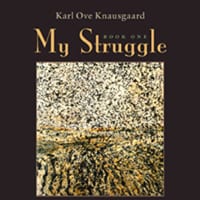from Review of Contemporary Fiction — a review of White Masks
Author: archipelago
Review of To Mervas from Rensheng
Review of The Waitress Was New from Newsday
Review of The Twin from The Courier Mail
Review of Sarajevo Marlboro from Metro Times
Review of Plants Don't Drink Coffee from Dreadlock Girl
Review of My Struggle from Review of Contemporary Fiction
Review of My Kind of Girl from The Indian Express
Review of Mouroir and Voice Over in Review of Contemporary Fiction
from Brian Evenson, Review of Contemporary Fiction – “Mouroir, Mirror Notes of a Novel & Voice Over: A Nomadic Conversation with Mahmoud Darwish, by Breyten Breytenbach,” a review of Mouroir and Voice Over
Long out of print (it was originally published in 1984), Mouroir might as a novel, a series of stories, essays, prose poems, philosophical reflections, notes, or fragments, but is at the same time none of the things. Indeed, the power of this book, written by South African writ Breytenbach when he was imprisoned for seven years, lies in just th these are pieces that cannot be pinned down. Here, the boundaries the real and the magical are blurry, here the poetic and the lyrical c abruptly up into something painfully real. They are flights of the ima written during a time of physical immobility. Though a few don’t am much, the majority of them develop in surprising and satisfying way Breytenbach’s English, inflected as it is by the logic of poetry and dr his native Afrikaans, and by French, is surprising as well: a mortal w for instance, might be described as having “an odd odor, the dank a distant smell of a wing.” At its best (in, for instance, pieces such as “Wiederholen,” and “A Pattern of Bullets”), Mouroir is replete with st gestures and startling imagery. Often too, Breytenbach has a way of reality back on itself that makes the metafictional seem deadly serio engaged while still remaining playful. Mouroir is a complex, importa Voice Over, published simultaneously, is a twelve-section poem writ an homage to Mahmoud Darwish. It converses with Darwish after hi continuing to wrestle with his presence and his poetry. Whereas Mo makes the most of ambiguity and shapelessness, Voice Over shows Breytenbach to be equally talented when working in a more directed formal space.
Review of In The Presence of Absence from Review of Contemporary Fiction
from Daniel Garrett, Review of Contemporary Fiction – “In The Presence of Absence,” a review of In The Presence of Absence
In a culture that considers itself practical, prides itself on commerce, and considers philosophy suspect, it becomes easy to question—with fear and doubt—whether art offers anything more than entertainment value. Luckily, art itself—such as In the Presence of Absence, the prose poetry of the great Mahmoud Darwish—gives an answer: consciousness, emotion, geographic and natural detail, and metaphor are used to create both authority and meaning; and poetry gives us both existence and its illuminating interpretation. Mulberry trees, tobacco leaves, a hand cut while slicing an apple for a girl, school, exile, prison, autumn, hospital, rain, family, and more are found in Darwish’s poetry in prose. In the Presence of Absence is a song for the dying poet’s own spirit, both farewell and praise—Darwish knew an elegy is praise that arrives too late—and we are witnesses to his revelation that our knowledge of self and other is incomplete, allowing for both individuality and relationship. Darwish (1941–2008) was a Palestinian poet whose circumstances compelled him to be superb. No ordinary language could match his experience of childhood exile, troublesome return, and prison, as well as friendship, love, and sensuality. “Do not search for the Canaanite in you to prove that you exist,” Darwish advises, before reviewing that same history, ancient and modern, in a work that acknowledges contradictions, dualities, and oppositions active in terrain leveled “according to the dimension of a sacred myth armed to the teeth.” The catastrophe has taught him that there are at least two people in jail: the jailed and the jailer. Darwish distinguishes between a “coy heroism” of rhetoric and ritual, and a “stoic heroism” of simplicity, of quiet acts of love, creating a poetry that brings together exile and all of existence.

